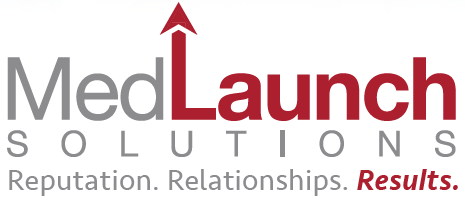In many industries, relationships are established and deals are finalized over lunch meetings. These days, more meetings take place virtually, however the importance of building relationships is still essential and face-to-face interaction is always imperative for cultivating business networks. Lunch and learns at offices that may be referral sources for your practice can be very impactful and can be a vital component to a successful physician liaison program.
As a physician specialist or facility, participating in a lunch and learn is all about developing relationships with referring physicians and sometimes – even more importantly – their staff. Remember, often times it’s not the physician that makes the final decision on a referral – frequently a nurse or a medical assistant may have the leeway to make that call for the doctor. Meeting them, showing them you appreciate their trust in them and taking time out of your day to spend a few minutes with them is invaluable.
Here are 4 ways that lunches at referring offices can help to build your referral network and patient pipeline:
1. Doctor to Doctor Interactions
It’s important and impactful that your physician liaison has a strong relationship with your referring providers and their staff. However, it is in fact THE DOCTOR that treats their patients. Putting a face to a name for referring providers, their nurses, medical assistants and even phone staff is extremely beneficial. Lunches at the referring offices’ location are a great way to build relationships with providers and staff, but one-on-one lunches or dinners – set up by the physician liaison – are also impactful in connecting personally with the referring provider.
2. Be the Expert That You Are
Use this time to educate your audience about how you can help their patients. Your physician liaison should have basic knowledge about what you do, the types of patients you see and your practice in general, however, you are the expert and no one can answer the tough questions like you can. Lunches are an excellent opportunity for you to position yourself as the expert and answer questions from other providers and staff. When you take time out of your day to educate them on your specialty, you become the “go to” for questions in your field.
3. Maintain Existing Referral Relationships
You may think that lunch and learns are only appropriate at practices where you don’t know all of the providers or the providers are not referring to you. Don’t forget about maintaining existing referral relationships! New specialists come into town all the time, and it is imperative that you stay TOP OF MIND with the physicians, their midlevels, nurses and referral coordinators. Remind the key decision makers why they often choose YOU for their patients.
4. Let Them Know You Are Accessible
Doctors are busy people. So few of them have time these days for anything outside of patient care. Hence, the growing popularity of utilizing a physician liaison to build relationships and referral networks on behalf of medical providers and facilities. Nonetheless, taking time to spend an hour at a referring provider’s office goes a long way in strengthening a referral relationship. It shows them that you are willing to go the extra mile for both them AND their patients. Offer to be a resource. Let them know you are more than happy to help. Show them that you care about their patients as much as they do and they will be more willing to place their trust in you.
The number one goal for doing a lunch at a referring provider’s office is to build new referral relationships and leverage existing ones. Be comfortable, engaging and authentic and answer their clinical questions and leave the details and the follow-up to the physician liaison. Understanding the impact and importance that these lunches can have on your referral network can significantly strengthen your physician liaison program!


